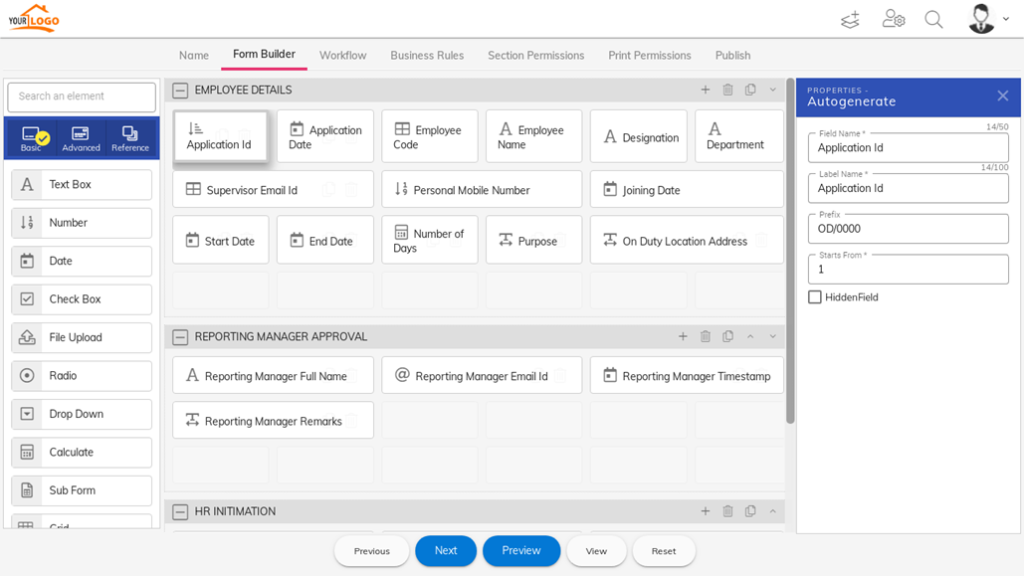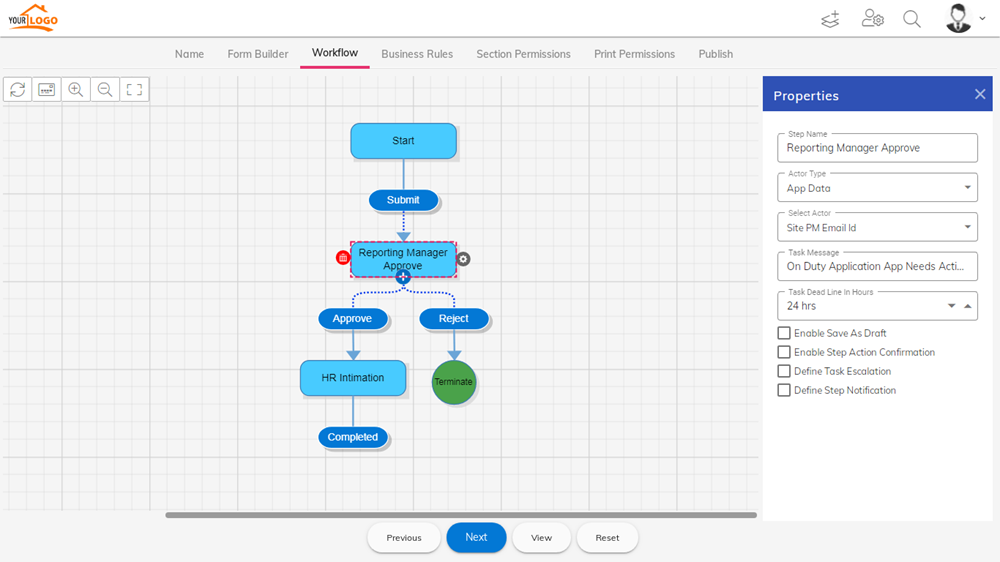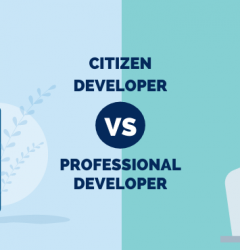
Businesses today face numerous challenges, such as stringent regulations, evolving customer demands, intense industry competition, and environmental changes. Addressing these issues can be beyond the capacity of most IT departments.
To tackle this problem, rise of the citizen developers is here, empowering employees to develop their own solutions without relying on IT professionals. This does not diminish the importance of IT, but instead strengthens it.
Citizen developers are non-IT professionals using no-code or low-code platforms to build business apps and automate processes. In recent times, they are reshaping how companies innovate by bridging the gap between IT and operations. This guide explores who citizen developers are, why they’re rising, and how businesses can empower them.
By fostering a connection between IT and other departments through citizen development, organizations can facilitate faster collaboration, optimize processes, and solve problems more effectively.
Citizen Developers are breaking down barriers and bringing their ideas to life using low-code and no-code platforms.
Citizen Developers vs Professional Developers
Citizen developers and professional developers represent two distinct groups in the software development landscape, each contributing uniquely to the creation of applications and solutions. Citizen developers are typically non-technical individuals from business or operational roles, such as marketing, HR, or finance, who use low-code or no-code platforms like Microsoft Power Apps or Airtable to build applications or automate processes.
These platforms feature drag-and-drop interfaces and pre-built templates, allowing citizen developers to create solutions without formal coding knowledge. Their focus is often on solving specific business problems or improving workflows within their departments, enabling faster development cycles and reducing reliance on IT teams. However, their solutions are usually limited in scope, scalability, and complexity, and may lack adherence to best practices in security and maintainability.
On the other hand, professional developers are trained and experienced in software development, often with formal education in computer science or related fields. They use traditional programming languages like Python, Java, or JavaScript, along with advanced tools such as integrated development environments (IDEs) and version control systems, to build complex, scalable, and secure applications. Professional developers handle large-scale or enterprise-level projects, ensuring high performance, maintainability, and adherence to industry standards. While their development cycles are longer and more resource-intensive, they are essential for creating sophisticated systems that meet rigorous technical and business requirements.
Despite their differences, citizen developers and professional developers often collaborate. Citizen developers can quickly prototype ideas and address immediate business needs, while professional developers refine and scale those solutions for broader use. This partnership allows organizations to innovate efficiently while maintaining robust, secure, and scalable systems. Together, these two groups play complementary roles in driving digital transformation and meeting the diverse needs of modern businesses.
Who is a Citizen Developer?
A citizen developer is a business user who creates applications using no-code or low-code tools without formal programming skills. They build apps to solve business problems, automate workflows, or streamline tasks, typically without heavy reliance on IT teams.
Businesses across the world are embracing no-code apps and citizen dveelopment platforms that allow them to digitally transform their processes in days and weeks instead of months and years. And behind this transformation is a rising band of citizen developers from non-IT backgrounds. So, what has led to the growth of this legion?
With apps being so versatile, more and more companies are interested in leveraging them for their business needs. However, creating an app from the word ‘Go’ involves financial investment and the services of a qualified software specialist. No-code development platforms, on the other hand, offer a viable alternative with little or no cost and no specialized skills required either.

Also read: Citizen Developer vs. Professional Developer
Surprised? Read on.
No-code app platforms provide a user-friendly interface through which anybody; yes, anybody, even those with a non-IT background, can build applications without writing any code. With the help of these platforms, businesses, professionals, freelancers, HR and finance experts, and individuals can create apps by using ready-made templates for user interface and functionalities and address their specific requirements.
What this means is that more people from different age groups and various departments within a company or independent professionals can realize their ideas without relying on conventional IT and administrative gatekeepers.
Watch Webinar: The Rise of Citizen Development in Enterprise App Development
Sounds good? There’s a whole lot more.
Apart from the development, controlling the functions of the app doesn’t require coding either. They can be fully adjusted via an easy-to-use configuration setting. Transforming manual processes into automated applications is fast gaining popularity. It helps unlock the power of digital data and makes the applications easily accessible to team members and customers.
Apart, no-code apps have various other applications that bring time and cost savings, improve internal processes, and contribute to digital innovation. No-code apps can be native, web-based, process-driven or data-driven to meet the diverse needs of businesses.
With no-code apps, the approach is declarative only. End-users without coding skills simply state what they would like an app to do by employing a no-code platform’s capability.
Also Read: Strategy for Problem-Solving Culture with Citizen Development
Why There is a Rise of the Citizen Developers
This rising CD trend empowers non-technical individuals to become drivers of innovation, propelling digital transformation initiatives to new heights. Let’s see the reasons behind the surge in citizen development and its transformative impact on organizations worldwide.
1. Increasing Demand for Customization and Agility
In today’s rapidly evolving business landscape, organizations require agile and customized solutions to stay competitive. Citizen development offers a way to rapidly develop applications tailored to specific business needs without relying solely on IT departments. This flexibility and speed have fueled the rise of citizen development.
2. Democratizing Innovation
Citizen development empowers individuals from various departments to actively contribute to innovation. Business users can use no-code or low-code platforms to translate their domain expertise into practical solutions. This democratization of development enables organizations to tap into a broader pool of creativity and problem-solving abilities.
3. Bridging the IT Gap
As the demand for new applications continues to surge, traditional software development processes often find it challenging to keep pace with the requirements. Citizen development bridges the gap by enabling non-technical individuals to create and deploy applications independently. This relieves the burden on IT departments, reduces backlogs, and allows for more efficient resource allocation.
4. Empowering Business Users
With no-code and low-code platforms becoming increasingly user-friendly, citizen development has become accessible to business users without extensive coding knowledge. This empowerment enhances job satisfaction and encourages a culture of innovation and ownership among employees.
5. Accelerating Digital Transformation
As organizations embrace digital transformation, citizen development is vital in driving change. Organizations can rapidly deploy digital solutions, streamline processes, and adapt to evolving market demands by enabling business users to contribute directly to application development.
Also read: The Pros and Cons of Citizen Development
Benefits of Citizen Development for Businesses
1. Accelerated Innovation
- Faster App Development: Citizen developers use low-code/no-code platforms to rapidly prototype and build solutions.
- Quick Iteration Cycles: Business users can test and improve solutions without lengthy IT backlogs.
2. Reduced IT Bottlenecks
- Less Burden on IT: Non-technical users can handle routine or department-specific apps, freeing IT for complex challenges.
- Parallel Development: Enables multiple teams to build and deploy apps simultaneously.
3. Cost Savings
- Lower Development Costs: No need to hire large development teams or outsource.
- Efficient Resource Use: Employees already familiar with business processes develop tailored apps, reducing rework.
4. Improved Agility
- Faster Response to Change: Teams can quickly adapt tools to evolving market or internal demands.
- Custom Solutions at Scale: Apps can be created to meet specific team needs without waiting for centralized action.
5. Enhanced Employee Empowerment
- Ownership and Autonomy: Employees solve their own challenges, increasing job satisfaction and engagement.
- Skill Development: Non-technical staff upskill in digital literacy and problem-solving.
6. Better Alignment Between Business & IT
- Fewer Miscommunications: Since business users are the app creators, there’s less risk of disconnect between requirements and outcomes.
- Shared Responsibility: Promotes a collaborative culture of innovation across departments.
7. Increased Productivity
- Automated Workflows: Repetitive manual tasks are replaced with efficient, automated processes.
- Streamlined Operations: Departments get tools specifically designed for their unique workflows.
8. Scalable Digital Transformation
- More Hands Building Solutions: Organizations can scale transformation efforts beyond the limits of traditional IT.
- Democratization of Technology: Tech becomes a shared asset across all departments, not siloed in IT.
9. Compliance and Governance (with the Right Platform)
- Central Oversight: With proper governance in place, IT can monitor, guide, and secure all citizen-built apps.
- Audit Trails and Permissions: Modern platforms ensure transparency and control over data and workflows.
The biggest benefits – time and cost savings
With shortage of IT professionals and large backlogs in IT departments, traditional software development is unable to fulfill the growing need for solutions. No-code apps are therefore emerging as a powerful platform as they usher in direct time saving for businesses and IT teams.
Further, if a company needs to work with an external IT specialist, it has to pay for a long process of creation, deployment, updates, and maintenance. On the other hand, no-code apps are readily available, come at a lower cost, and can be just as efficient, leading to significant cost savings.
“A spectrum of citizen developer roles is emerging. These new roles may not replace traditional software developers, but they can enhance your software delivery strategy by giving your business people the tools they need to innovate on their own.”
John R. Rymer, Vice President, Principal Analyst serving Application Development & Delivery professionals at Forrester
Also watch:
How do No-Code Citizen Development Platforms Work?
Citizen developers start creating their apps using a toolbox that is at their disposal. They simply have to drag and drop visual boxes to add and arrange functionalities and design workflows. Drop-down menus and a colour palette help to provide choice from a set of options, as well as customize or brand the app. What’s more, many platforms offer ready-made templates for typical business use cases. Citizen developers can employ the template to build additional functionalities on it that are specific to their company’s needs.

Also read: How to Implement and Govern Citizen Development
By creating a visual and intuitive interface, which graphically replaces the lines of code behind it, end users can set up their application, connect it with databases or web services, integrate it with other tools, and start using it for tackling work tasks. As you can see, app creation and deployment time are drastically reduced.

A significant deficit of 85.2 million IT workers is expected by 2030
Who can use No-Code Apps?
No-code apps are helpful for businesses of all sizes and in many different trades, as well as for individual professionals.
In Large Businesses, processes can be speeded in diverse areas including inventory management, equipment inspection, safety audits, and many more.
For Small Enterprises, no-code platforms are a real game-changer as they allow the creation of important customer-facing apps that can fuel sales and customer engagement.
Consultants and Freelancers can benefit greatly from the no-code apps to optimize their operations in diverse ways.
Citizen Developer with Low-Code
Citizen developers leveraging low-code platforms are transforming the way organizations approach software development and process automation. Low-code platforms provide intuitive, drag-and-drop interfaces and pre-built templates that enable individuals with little to no formal coding experience to create functional applications. These citizen developers are typically business users from non-technical backgrounds—such as marketing, HR, or operations—who have a deep understanding of specific business processes and needs. By using low-code tools, they can quickly design and deploy solutions tailored to their department’s requirements, such as automating repetitive tasks, building custom workflows, or creating simple apps for data collection and reporting.
The rise of low-code platforms empowers citizen developers to innovate without relying heavily on IT departments or professional developers. This democratization of development accelerates problem-solving and reduces bottlenecks, as business users can address their own needs in real time. Also, low-code platforms often include built-in features for integration, security, and compliance, making it easier for citizen developers to create solutions that align with organizational standards.
However, while low-code tools are powerful, they are best suited for smaller, department-specific projects or prototyping. For more complex, scalable, or mission-critical applications, collaboration with professional developers is often necessary to ensure robustness, performance, and long-term maintainability. Overall, citizen developers using low-code platforms are playing a pivotal role in driving digital transformation and fostering a culture of innovation within organizations.
Who Can Be A Citizen Developer?
Anyone can be a citizen developer, regardless of their technical background or coding experience. The concept of citizen development is to empower non-technical individuals to create their own software applications and technology solutions using low-code and no-code platforms. These platforms are designed to make application development accessible and easy to use, allowing anyone with an idea and the willingness to learn to create their own technology solutions. With the increasing availability of these tools and resources, there is no limit to who can become a citizen developer and create custom applications to solve real-world problems.
Anyone interested in creating software applications or automating business processes can become a citizen developer in an organization. This could include employees from different departments, such as marketing, sales, human resources, or finance, who understand their business processes and the challenges they face. They can leverage low-code and no-code development platforms to create custom applications and automate tasks to increase efficiency and productivity.
Also Read: Meet the Top Citizen Development Influencers
IT professionals and developers can also become citizen developers and use these platforms to create rapid prototypes and proofs-of-concept for testing new ideas and solutions. This can help bridge the gap between business requirements and IT implementation and accelerate development.
Anyone willing to learn and desire to improve their organization’s processes and operations can become a citizen developer and contribute to their organization’s digital transformation.
How to become a Citizen Developer within an Organization?
Here’s the step-by-step guide to becoming a citizen developer within an organization presented in a table format for clarity:
| Step | Action |
|---|---|
| 1. Understand the Role | – Definition: A non-technical employee using low-code/no-code platforms to create apps or automate processes. – Purpose: Solve business problems, improve workflows, or enhance productivity. |
| 2. Identify Business Problems | – Observe inefficiencies or repetitive tasks. – Collaborate with colleagues to identify pain points. – Start with small, manageable projects. |
| 3. Learn About Low-Code/No-Code Platforms | – Familiarize yourself with tools – Explore tutorials, documentation, and online courses. |
| 4. Gain Basic Technical Skills | – Learn basic concepts like data structures, workflows, and UI design. – Understand data integration (e.g., spreadsheets, databases, APIs). – Familiarize yourself with basic logic and automation principles. |
| 5. Seek Training and Resources | – Take advantage of organizational training programs. – Enroll in online courses or certifications (e.g., Microsoft Learn for Power Apps). – Join internal communities or forums. |
| 6. Collaborate with IT and Professional Developers | – Work with IT to ensure compliance with policies, security, and governance. – Seek guidance for complex aspects of projects. – Use professional expertise to scale or refine solutions. |
| 7. Start Building Small Projects | – Begin with simple applications or automations (e.g., data collection forms, approval workflows, or dashboards). – Use pre-built templates and drag-and-drop features. |
| 8. Test and Iterate | – Share prototypes with colleagues for feedback. – Test thoroughly to ensure functionality and user needs are met. – Continuously improve based on feedback. |
| 9. Showcase Your Work | – Demonstrate the value of your projects to stakeholders and leadership. – Highlight time savings, cost reductions, or efficiency improvements. – Use success stories to advocate for citizen development. |
| 10. Stay Curious and Keep Learning | – Stay updated on new features and updates to your chosen platforms. – Explore advanced capabilities like AI integration or external system connections. – Network with other citizen developers. |
| 11. Advocate for a Citizen Developer Program | – Propose the creation of a citizen developer program if one doesn’t exist. – Suggest guidelines, training, and governance frameworks to support and scale efforts. |
Why investing in Citizen Developers is beneficial for companies?
The rise of the Citizen Developer movement is changing the way companies approach software development.
According to Gartner, it is said, 70% of new applications developed by organizations will use low-code or no-code technologies.
“Research indicates that nearly 80% of top-performing companies (pacesetters) in the US utilize citizen developers.”
With low-code and no-code platforms, business professionals can create custom solutions without relying on traditional IT departments. This shift has significant implications for companies and provides numerous benefits that make investing in Citizen Developers a smart choice.
Cost-Effective Solutions
Using low-code and no-code platforms, Citizen Developers can create solutions faster and at a lower cost than traditional software development methods. This makes it easier for companies to stay within budget and get more value for their investment.
Increased Agility
Citizen Developers can respond quickly to changing business needs, delivering solutions in a fraction of the time it would take traditional software development methods. This increased agility allows companies to stay ahead of the competition and quickly pivot to meet new challenges.
Better User Experience
Citizen Developers have a unique perspective on end-users’ needs, allowing them to create tailored solutions to meet their specific needs. This results in a better user experience and increased adoption of the solutions.
Improved Innovation
By empowering Citizen Developers, companies can tap into a new pool of ideas and creativity. This results in increased innovation and the development of unique solutions that can drive growth and competitiveness.
Better Alignment with Business Goals
Citizen Developers have a deep understanding of the business & its goals, allowing them to create solutions that are aligned with the company’s objectives. This results in better outcomes and more efficient use of resources.
The rise of the Citizen Developer movement is a game-changer for companies of all sizes and represents a new era in software development. Within this landscape, Key Performance Indicators (KPIs) and Return on Investment (ROI) serve as the compass guiding organizations toward success. KPIs provide a quantifiable way to evaluate the effectiveness of these initiatives, shedding light on their ability to streamline processes and improve outcomes.
Meanwhile, ROI offers a financial perspective, illuminating the tangible benefits gained from embracing Citizen Development. By understanding and harnessing the potential of Citizen Development KPIs and ROI, businesses can navigate their digital journey with clarity and confidence, driving innovation and growth.

Unleashing the Potential of Citizen Developers Across Industries
The force of citizen developers has taken hold in various industries, including:
- Healthcare: Citizen Developers in healthcare sector are creating No-code apps for patient management, electronic health records, and appointment scheduling.
- Finance: Citizen Developers in Financial institutions use no-code apps for loan origination, fraud detection, and compliance management.
- Marketing and Sales: Teams can streamline their campaign creation and distribution besides using no-code apps for lead management, customer relationship management, etc.
- Retail: Citizen Developers in Retail companies are creating no-code apps for inventory management, customer relationship management, and supply chain management.
- Government: Citizen Developers in Government offices building no-code apps for citizen engagement, service delivery, data management and workflow automation.
- Manufacturing: Citizen Developers in Manufacturing companies are creating no-code apps for production management, quality control, and supply chain management.
- Education: No-code apps are being used in education by Citizen Developers for student management, online learning platforms, and course administration.
- Human Resources: No-code apps are used for recruitment, employee management, and performance evaluation by Citizen Developers in HR departments.
- Telecommunications: Citizen Developers in Telecom companies use no-code apps for network management, customer service, and billing systems.
These are just a few examples of how different industries are already using no-code apps, but they are also being adopted in many other industries.
Also read: Everything you should know about no-code development
What are the Best Practices for Citizen Developers?
- Understand Policies & Governance: Collaborate with IT, follow organizational guidelines, and seek approvals to ensure compliance with security and governance standards.
- Start Small & Focus on Value: Identify pain points, deliver quick wins, and avoid overcomplicating initial projects.
- Leverage Low-Code/No-Code Tools: Choose the right platform, use pre-built templates, and learn the basics of the tool.
- Prioritize User Experience (UX): Design for end users, gather feedback, and test thoroughly before deployment.
- Ensure Data Security & Compliance: Protect sensitive data, follow governance rules, and monitor access to applications.
- Collaborate with IT & Professionals: Seek guidance for complex tasks, leverage professional expertise, and build partnerships.
- Document Your Work: Maintain clear documentation, share knowledge, and track changes.
- Test & Iterate: Test thoroughly, gather feedback, and monitor performance post-deployment.
- Plan for Scalability & Maintenance: Design for growth, plan for updates, and ensure long-term maintenance.
- Stay Within Your Limits: Know when to seek help, avoid overreach, and respect boundaries.
- Continuously Learn & Improve: Stay updated on platform features, expand your skills, and network with other citizen developers.
- Advocate for a Citizen Developer Program: Promote collaboration, share success stories, and build a community of citizen developers.
These best practices ensure citizen developers create effective, secure, and impactful solutions while aligning with organizational goals.
Quixy – An Ideal platform for Citizen Developers
Quixy is a no-code platform with low code capabilities that enables users with minimal technical expertise to develop custom business applications and automate processes. It provides an intuitive, drag-and-drop interface for creating custom solutions without writing code. This makes it possible for employees to take ownership of their business challenges and develop solutions to meet their specific needs, empowering them to become citizen developers.
Although there are some characteristics of Citizen developers that can make someone particularly well-suited for the profession, such as a problem-solving mindset and a willingness to learn, anyone can become a citizen developer with the right tools and resources. You can also check out Citizen Developer’s Toolbox: Insights and Strategies from Our eBook-Innovate and Empower: A Journey through Citizen Development!
With Quixy, users can quickly design, test, and deploy business applications that fit their unique requirements, reducing the dependence on IT professionals and streamlining the development process. Additionally, its features, such as integration with existing systems and collaboration tools, facilitate seamless teamwork and faster problem-solving. The citizen development value tree can act as a universal language, bringing teams together and harmonizing collaboration for project success.
Quixy empowers you to create your own apps by providing a low-code platform that enables you to create custom business solutions, automate processes, and streamline collaboration without requiring extensive technical skills. And helping citizen developers across verticals build applications in days and weeks to automate their manual processes and drive efficiency, productivity, and transparency. Don’t miss out on the chance to elevate your processes. Take the first step and get started with Quixy today.
Frequently Asked Questions
Here are some of the frequently asked questions related to the rise of citizen developers and why businesses should care:
Q: Why is there a rise in citizen developers?
A: The rise of citizen developers is driven by the increasing demand for customized and flexible solutions, as well as the availability of user-friendly low-code and no-code development platforms that enable non-technical users to create applications and tools.
Q: Why do businesses need citizen developers?
A: We need citizen developers for several reasons:
Accelerated development: Citizen developers can help businesses accelerate the development process by creating applications and tools without relying on IT departments.
Customized solutions: By allowing them to create their own applications, businesses can get customized solutions that meet their specific requirements.
Cost savings: Citizen development can help businesses reduce the cost of development by using low-code or no-code platforms that don’t require specialized technical skills.
Innovation and collaboration: By empowering employees to create their own applications, businesses can tap into the creativity and ingenuity of their workforce.
Q: What tools do citizen developers use?
A: The most popular tools that citizen developers use are low-code or no-code development platforms. These platforms provide a user-friendly interface and pre-built components that allow non-technical users to create applications and tools without writing code. One of the most popular no-code platform is Quixy, platform provides a range of pre-built templates, components, and integrations that can help citizen developers quickly create applications and tools that meet their business needs.
Q. Can I be a Citizen Developer?
Yes, you can be a citizen developer. Citizen development refers to the practice of creating software applications, websites, and other technology solutions by people who are not professional developers. With the increasing availability of low-code and no-code development platforms, it has become easier for individuals with no coding experience to build their own applications.
Discover the step-by-step guide on how to become a citizen developer and create your own technology solutions by checking out our latest blog post!
Login
Please login to comment
0 Comments
Oldest















